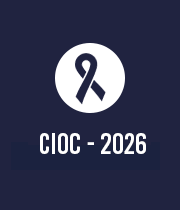Paediatric Oncology
Neonatal cancer is an uncommon disease that comprises of a broad variety of neoplasms with a wide range of histological characteristics. Almost all kinds of pediatric cancer can affect fetuses and newborns however the presentation and behavior of neonatal tumors differs significantly from that of older children resulting in disparities in diagnosis and treatment. Although the origins of neonatal cancer are unknown, genetic factors are likely to play a role. Other congenital anomalies are also present.
"Childhood cancer" is a broad phrase that refers to a variety of cancers and noncancerous tumors that affect children. Pediatric cancer is another name for childhood cancer. Cancer can develop in any part of the body including the blood and lymphatic systems, the brain and spinal cord (central nervous system), kidneys and other organs and tissues in children.
- Neonatal Cancer Epidemiology
- Neuroblastoma
- Teratoma
- Diagnosis and Treatment of Neonatal Cancers
- Types of cancer in children

Rajvir Dahiya
University of California San Francisco, United States
Atif A Ahmed
University of Washington-Seattle Children’s Hospital, United States
Anyou Wang
DIFIBER LLC, United States
Paulo Cesar De Morais
Catholic University of Brasilia, Brazil
Shilpa S Dhar
UT MD Anderson Cancer Center, United States
Eleni Petsalaki
University of Crete, Greece



Title : A novel blood-based mRNA genomics technology for cancer diagnosis and treatment
Rajvir Dahiya, University of California San Francisco, United States
Title : tRNA-derived fragment 3′tRF-AlaAGC modulates cell chemoresistance and M2 macrophage polarization via binding to TRADD in breast cancer
Feng Yan, The Affiliated Cancer Hospital of Nanjing Medical University, China
Title : Integrating single-cell and spatial transcriptomics to uncover and elucidate GP73-mediated pro-angiogenic regulatory networks in hepatocellular carcinoma
Jiazhou Ye, Guangxi Medical University Cancer Hospital, China
Title : Unveiling the synergism of radiofrequency therapy and graphene nanocomposite in tumor cell viability assay
Paulo Cesar De Morais, Catholic University of Brasilia, Brazil
Title : Analysis of the dynamic evolution and influencing factors of nutritional risk in breast cancer patients during treatment
Jingwen Yan, Sun Yat-sen University, China
Title : Integrative multi-omics reveals metabolic–stemness coupling and novel therapeutic targets in osteosarcoma chemoresistance
Jinyan Feng, Tianjin Medical University Cancer Institute and Hospital, China